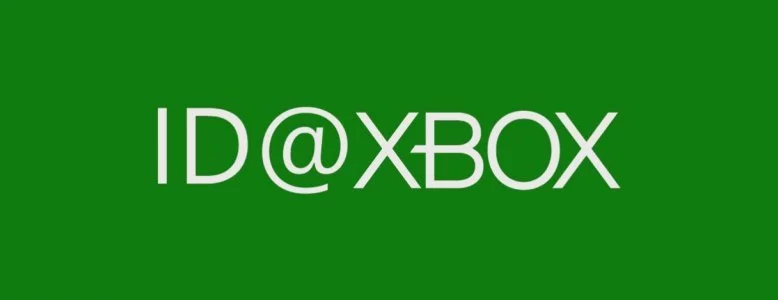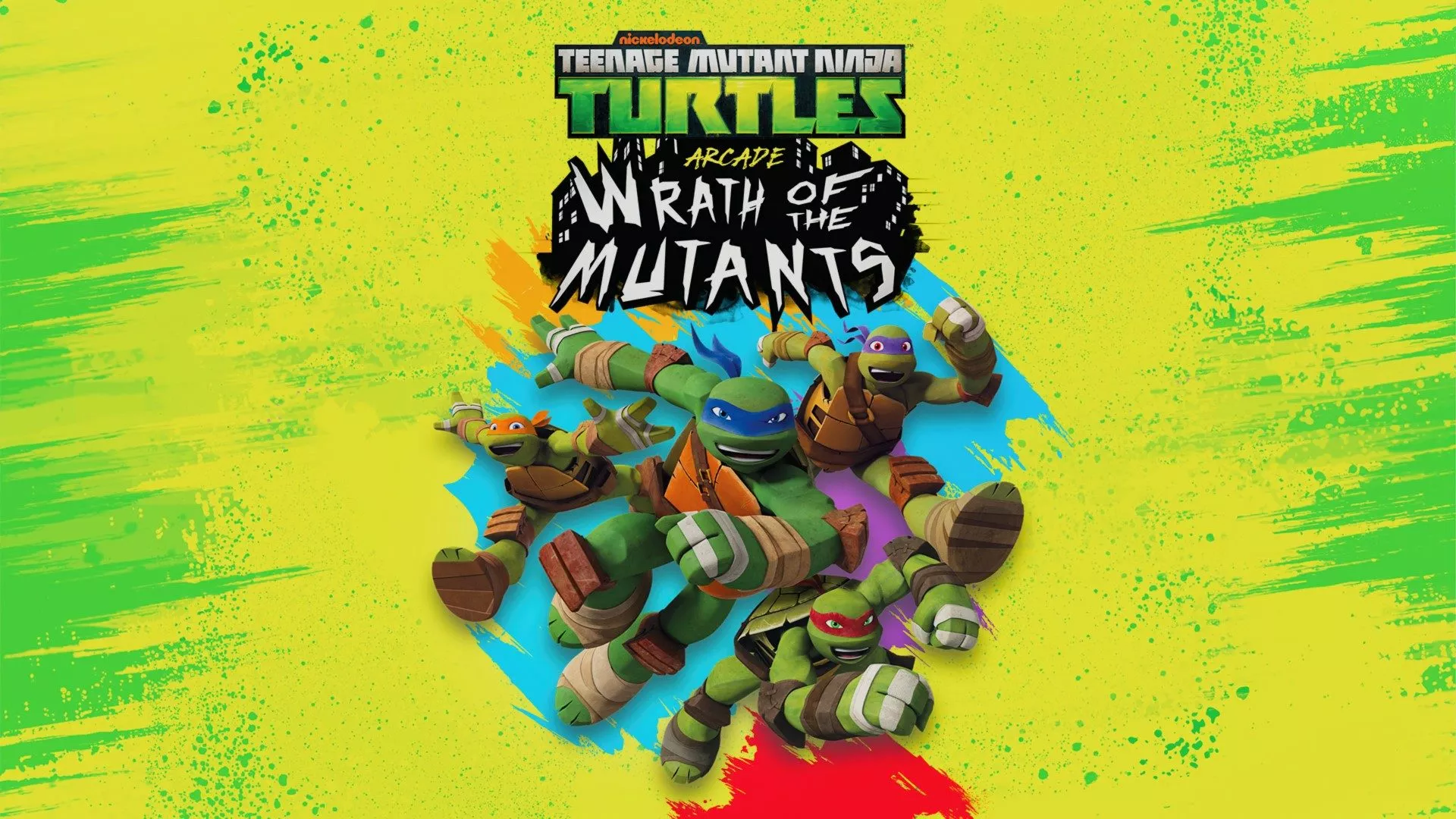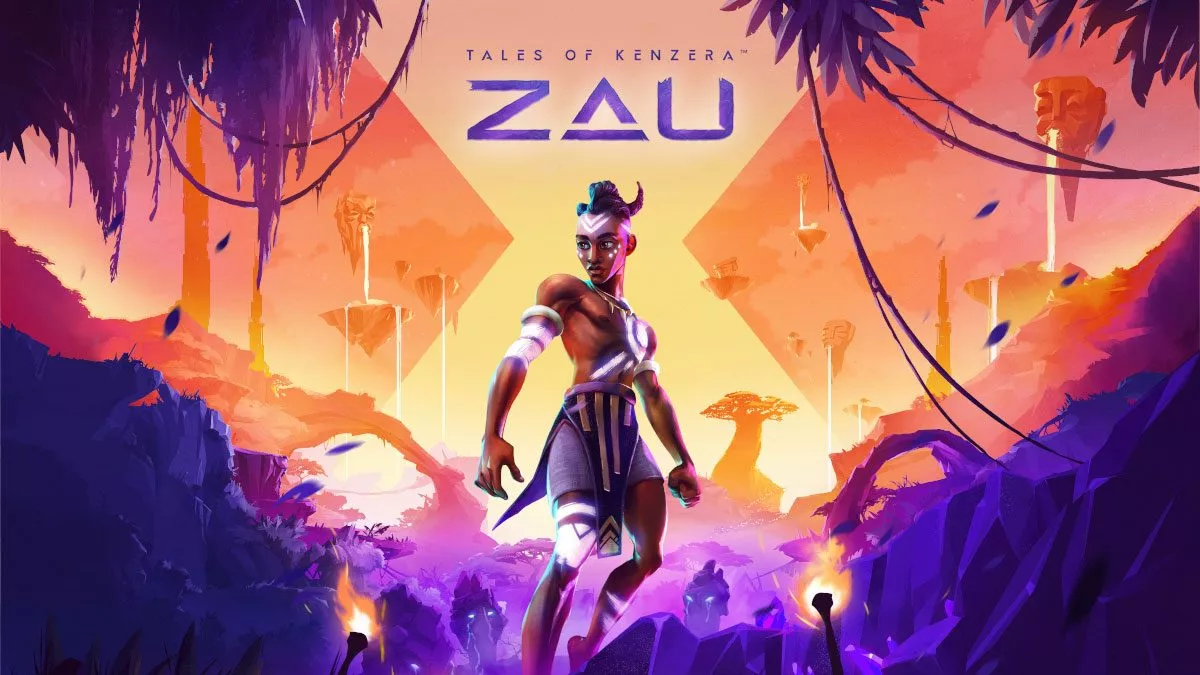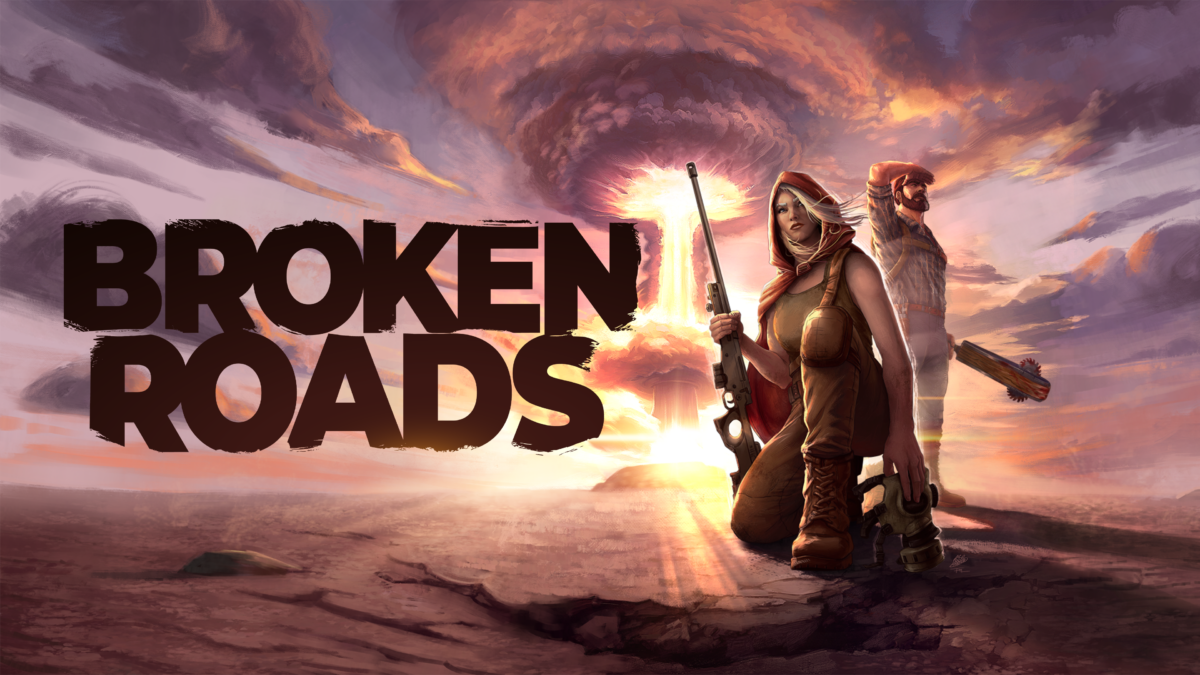Microsoft versus Sony, Battlefield versus Call of Duty and Forza versus Gran Turismo. These are some of the rivalries that can get people talking about console wars. “Game On or Game Over” is your place to get inside the minds of Nicholas and Andy as they seek to find the true meaning of gaming and tackle some of gaming’s most controversial subjects. Both are award winning authors – although the awards haven’t been mailed or created yet — but trust them. Would they lie to you?
Andy: Here we are back again (is this where we queue up the Backstreet Boys music?) it seems like every week there is something new to talk about. This week, I wanted to touch on something that is sort of a dirty word that really doesn’t seem to get talked about a lot. I bring it up now because of what was making the rounds last week. What is the dirty word you may be asking? None other than “embargo”. For those who may not be up to speed, reviewers often get games from publishers with the stipulation that the review for that game cannot be posted until a set day/time. One of the reasons it’s done is to ensure that no one rushes through the game and vomits out words just to get a review on a page for hits. Sure, there are still reviews out there that probably qualify as that, but it makes sense. Also, it’s so sites don’t try to one up the other by being ‘first’.
All that makes sense and is fine and dandy, but there’s an insidious evil that lies in a misused embargo by a publisher. Reviewers agree to the terms of the embargo and the non-disclosure agreement before getting the game. With no knowledge about how awesome the game will be or how rubbish it is. It just is what it is. Yet, publishers can use that to their advantage. If they think the game is not going to do as well as the hype can match they can request the embargo as late as possible. The flipside of course if they are really confident the game is great they can push it forward to get the review out well before the game’s release to help generate more sales.
I bring this up because last week was a tale of two games. Dragon Age: Inquisition released this week, but the review embargo lifted last week. Conversely, Assassin’s Creed Unity released last week however the embargo was not lifted until 12 hours after the game was released. I haven’t had a chance to play AC Unity yet, but by many accounts it may not be what many were hoping for. From the outside looking it, it seems like Ubisoft didn’t have as much confidence in AC Unity and held the reviews hostage to maximize their sales. I’ve been thinking about this quite a bit. We reviewed both games Dragon Age: Inquisition and AC Unity both very favorably while other sites were much more critical of AC Unity. Yet, the fact remains Ubisoft held those reviews until after the game was released. There is no set standard to when reviews should be posted, it’s all up to the publishers and varies title by title. Is this something that gamers should look at more carefully? Should there be more of an industry standard to where reviews come out maybe a week before the game, or maybe the day before? Or is it simply a case of thinking about it too much?

Nicholas: I don’t think so. I don’t want to immediately jump to the skeptical side of the discussion, but I certainly believe there’s a good chance the proximity of an embargo lifting to the date a game launches can give gamers an insight into the potential quality of a title. There’s a perfect example of it too – 2013’s smash hit Alien: Colonial Marines. Think of a publisher like a parent and a game as their child. Any parent who’s proud of their child are going to want to boast about it to others. They’re going to want to show it off and flaunt it to everyone around them. In the same way, I expect this to be the case with publishers and a good game. I understand that reviews can’t come out month’s before a title’s release, but like Dragon Age Inquisition, EA must have been confident that the reviews would be favorable so they’re trying to generate as much positive word-of-mouth as possible before it finally hits the shelves.
In contrast, we shouldn’t judge gamers and reviewers for being wary when they’re told they need to wait until the last minute (or in the case of Unity, even longer than that) to publish their opinions to the rest of the world. Like you said, Stevivor rated Unity highly and I’m crossing my fingers hoping that I’ll love the game as much as Steve did, but from the moment the review went up I had friends talking about the issues other sites had addressed. Like we’ve discussed before, reviews are always opinions at the most, but if there are people who aren’t happy with certain features then I bet the publishers were aware of these issues during the game’s development and wanted to make sure potential buyers weren’t able to hear about them until after the money has been spent.
Regarding an industry standard for reviews, as nice as it sounds I don’t think it’s realistic. As gamers we aren’t owed anything from publishers. We aren’t owed timely reviews and we aren’t even owed amazing games. Yes, we’d all love for each game that’s released to be bar-raising and awesome, and yes, we’d all love for reviews to be released well in-advance so we can judge if it’s worth spending $60-100AUD on, but that’s all just a convenience and not necessary. What do you think though? Is there any reason how an industry standard would work? Do you think publishers would buy into it? More importantly, without it, what issues would/are gamers facing as a result?
Andy: That’s a great question. It’s easy to say, “no it would never work” but I think that type of answer is coming from the perspective that it won’t work because it hasn’t been tried before. The only group where solid standard has the possibility of not benefiting them are the developer/publisher of a sub-par game. If a game’s reviews offer a consensus that it’s not a good title, then the sales would no doubt suffer. Of course if the opposite is true and critics rave about how awesome a game is then sales would also respond accordingly. The cost of being a gamer seems to increase all the time with the price of consoles, games, subscriptions to play online if there’s multiplayer and any subsequent DLC/microtransactions. Publishers ask a lot of gamers, just look at pre-orders incentive. Publishers want a gamer’s money before the game is even released on the notion that it will be good based on ads alone.
Is it not reasonable for gamers to start saying to publishers “prove it” before giving them money for a new release on launch. The issue with embargos is that there is no standard even within a publisher catalog. Using Ubisoft as an example again, we’ve talked about how delayed the AC Unity embargo was already, but fast forward just a couple days and the reviews for Far Cry 4 dropped the weekend before the game was released. So in one week we had Ubisoft on both sides of the fence in terms of embargos, one late and one early. If that doesn’t raise some eyebrows and start to ask some questions I don’t know what will. It’s hard not to draw some conclusions based on that alone.
Having a standard, regardless of what it is – as long as it’s before the game is officially released – can give gamers as informed opinion as possible. I 100% agree that every gamer needs to take each review, regardless where it comes from, with a grain of salt because everyone will have differing opinions. Yet, when there is a general theme to all the reviews and all those different reviewers notice the same things, then a picture starts to form of what the game is versus what the publisher wants you to think the game is before it’s released. I’m not talking a review months before a game is released, that’s not realistic. I’d like to see review embargos lifted, say, four days before a game is launched. If a publisher can spend millions of dollars doing marketing for their game, it’s not unreasonable for gamers to expect some standards in terms of quality of the game. What better way to assure gamers of the quality of a game than to have review sites pull back the curtain so to speak and release reviews prior to the games’ official release? Sure publishers may balk at a standard, but only for some games. Those games that they have less confidence in. For those games that they think the world of this is no issue at all. What do you see as potential drawbacks of developing a standard for review embargos? The movie industry is flooded with reviews for movies before the official release date. If publishers want gamers to throw money at them, is it too much to ask to give us a reason before we commit?

Nicholas: I wonder if there’s a need for a standard now if publishers seem to already be doing it? If we stick with the examples of Dragon Age Inquisition and Far Cry 4, both EA and Ubisoft allowed reviews to come out days before the game’s release. Is this not exactly the kind of thing we are talking about enforcing above? With the case of Assassin’s Creed Unity, the reviews came in after launch and were on average, a little less than impressive. I know we were speculating earlier, but does the date an embargo lifts not give an insight into the kind of quality we can expect to see? If most publishers are not waiting until launch to allow reviews to be published, that should show buyers some confidence that the publishers have faith their new release will satisfy.
The thing I’m still hung up on though is this entire idea of gamers being owed this opportunity to know about the quality of a game before purchasing it. I won’t deny, I’m one of those people who likes to read reviews of a game if I’m undecided (like Call of Duty for example), but if that review isn’t available before release and I want to get the game on launch, then there’s a risk I need to take. Either I can wait a day longer (since I’ve already waited months if not years anyway) and wait for the reviews to come in, or I can take a punt and hope that what the developers have been working on will be something I can enjoy. Is this demand for early reviews from the gaming community an example of gamer entitlement?
Going further on this point, what’s the worst thing that happens if we buy a game that we don’t like? Take Aliens: Colonial Marines for example. I put a pre-order down on the game for $10. The game launches and I spend $90 more to purchase a limited edition version. I get home, pop it in and realize after 30 minutes that its garbage. I now have two options – I either keep the game, power through, finish it and never play it again, or I take it back and return it/trade it in. Yes I might lose a bit of money if I can’t get a full refund, but in the scheme of things I’ve lost at most $100 on a game I didn’t really like. Is that really significant enough to start pushing all publishers to start releasing reviews early? You mentioned the costs of consoles and online multiplayer just before, but are these really the problem of publishers? They don’t determine what console a game is made for (at least, not once the grace period between new and old generations end) and they don’t determine if gamers need to pay for the console manufacturer’s online service, so should these extra costs be excluded from the debate?
Andy: Here’s the thing though, I don’t think the console and subscription services should be considered as extra costs. Reason being, if you don’t have them you can’t play the game, it’s that simple. Granted the cost of those do not go to the developer/publisher, but they are a very real cost to the gamers so they should be considered as part of the equation. In your example above, you sound pretty laissez faire about possibly losing that much money on a game that you only played for a short period of time. I’m not sure I’d ever be OK with losing money like that, even more so if we paid as much for a game as you guys do down in Australia. I don’t think those additional costs that we talked about are necessarily a problem for developers, but they have to at least be aware of them and factor them into how much they ask us to pay, both for the game and future DLC/microtransactions.
While you use Far Cry 4 and Dragon Age Inquisition as examples of why we don’t need a standard for review embargos, I would argue that those are the reason we do need one. How review embargos work right now is so arbitrary that gamers often don’t even know when the reviews will drop. If publishers don’t want us (as gamers) reading into things about when a review will be posted and extrapolating that to how good a game is or isn’t then they need to be more open about the process. As a gamer, I don’t look forward to rolling the dice on a game because I don’t want to lose money or game time to a bad/broken game. I say game time because, like many people, the amount of time I have to play games is finite and I want to play games that work and are fun, not sit around for the “good part” to get there or to start enjoying it. I want turnkey games; load up a game and have fun. Nothing else.
You seem to be opposed to a strict standard across all games as to when a review posts. I can accept that, and can even admit it’s a pipe dream to think something like that would ever happen. Would I like to see it come to fruition someday? Oh absolutely. I will concede that it probably won’t happen, yet I still think something about the process needs to at least be tweaked. How about this for a suggestion – instead of a specific time for reviews, what do you think about the idea that publishers simply tell gamers when the embargos will be lifted? One of the frustrations I have as a gamer is never knowing when reviews will be posted. They just magically appear in my Twitter and Facebook feeds. What are the drawbacks to a publisher for saying when the review embargo for a specific game will be lifted? Do you think something like that would be a good compromise between what it is now, and what I argued it should be?
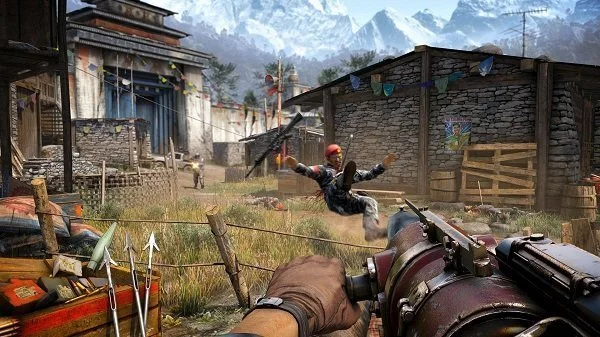
Nicholas: I think it all ties into the marketing department’s plan for creating suspense and hype for their products. We’ve spoken before about wanting to know as little about games before they are released and I think this ties into that. Yes publishers are able to release a schedule of when every bit of information might be released, but I think that might take away the fun of being able to wake up one morning, go to your favourite gaming news site and see that something new has been posted. Keeping it secret allows publishers to reveal content at their choosing and when they think it’ll suit.
Much like the embargo standard I’m also somewhat skeptical that this would work, also just because a marketing team might not be able to accurately foresee when they’ll decide to release new information. As usually I’m not speaking with experience here, but there could be many factors that determine when new content will drop – is it a slow news day for other publishers, when was the last time information was provided, how is the overall development going and is there a chance this feature could be scrapped later on are all things they probably need to consider. This would surely make being able to tell gamers when they can expect new news somewhat difficult.
Everything we’ve been discussing so far though leads me back to the same question – is this all not avoided if we just wait a day or two? You mentioned not wanting to waste your money and time on a game you might not enjoy, so wouldn’t it make sense to take the time to make an informed decision? If we’ve been waiting month’s for a game’s release, what does an extra day or two for the latest embargos to lift make in the scheme of things? If you want a collector’s edition of a title then you’re going to pre-order it well in advance anyway, so a review would seem pointless, no?
Andy: Oh damn, not going to lie the first paragraph of your reply makes a lot of sense actually and it pains me to even type that. I am one of those people who usually prefers to know as little about a game as possible before its release. More so if I know I really want the game. The catch is, if I am unsure about a game that’s when I go hunting for information. It’s a catch-22 for me because if I’m unsure about a game and there is a review embargo it makes it that much harder for me to make that decision. I completely get your point about why not just wait a day or two for the reviews, both critic and gamer-wise roll out.
It makes sense in theory, why not just institute a wait and see approach, I mean it makes sense. Yet, like many gamers and I, we’re all about that immediate gratification. I like my new shiny games and I like them right away. It has to do with fear of missing a game because they are released so fast (especially this time of year). Just like in games, I am a hoarder I’d rather have it and not need it, than need it and not have it. Add on-top of the marketing blitz that most games do, pre-order incentives and Day One editions and it’s a perfect storm to toy with my emotions. That’s the caveat though isn’t it? I must have those new shiny games… but I don’t want to waste my money on a bad game.
In an age where publishers like to smack gamers upside the head with as much pre-release information as possible; game developer diaries, trailers, character breakdowns, location breakdowns what have you, it’s ironic that the bit of free publicity they can get (game reviews) they throttle to a pinpoint delivery day that from the outside looking in seems arbitrary. Going back to the start of this article, it is very hard for me not to start to prejudge games based on how willing they are to let the reviews roll before the release date. It is something I am certainly going to be paying attention to more and more.
To close out this week’s article, and to begrudgingly give you a little credit, does this issue then becomes more about gamer awareness than it does blaming the publishers? Not so much blaming them for the “when” the reviews are released, but more so the “why” they are held back (usually). Is this just another issue that gamers need to be aware of, not to necessarily fix it, but to be cognizant of the (implied) meaning of why some reviews show up late, and what that could potentially mean to a game?

Nicholas: Yes to all those questions. Like you mentioned before, $60USD or $100AUD is not a small fee, and if gamers want to make sure they get value for their money then they should be a little smarter with their buying choices. For $100 do I think developers and publishers should be putting out the best game possible? Absolutely. I’ve never been involved in the development process though so I can never speculate on how a ‘bad’ game is made, but apart from those obvious money-grab video game to movie tie-ins, I doubt it’s done deliberately. A publisher is probably trying to make the most of what is being given to them, but gamers need to be mindful that not every game is going to be a winner so they should always hold off on that purchase when they are unsure.
I completely understand where you are coming from by wanting to buy the newest and shiniest toys as soon as possible, but I think there is a risk we need to accept as gamers/collectors that sometimes we might end up buying a turd. Like all early adopters of technology, whether it be for televisions or consoles, phones or video games, being the first people to own it means the chance of having issues, and with games that just means the risk of buying a bad game. Once again, publishers don’t owe gamers anything but a game that works, so no matter how bad it is, as long as it isn’t crashing every 10 seconds then they’ve fulfilled their side of the deal. No-one has guns to their heads when they are buying a new game – well, only once for me but that was it.
You asked if gamers just need to think of “why” a review might be published rather than “when”, and this is spot-on. Most of us are now gamers of over 10-20 years and in that time we should have gotten better at smelling when a game might be rotten. Sometimes we just need to tread carefully before we outlay that money, but for those who are a little more adventurous, they just need to remind themselves that there are sometimes pitfalls when looking for those heights.
Tune in next time for the next instalment of Game On or Game Over. If you have any ideas for our next article, feel free to contact Andy or Nicholas on Twitter.
This article may contain affiliate links, meaning we could earn a small commission if you click-through and make a purchase. Stevivor is an independent outlet and our journalism is in no way influenced by any advertiser or commercial initiative.



